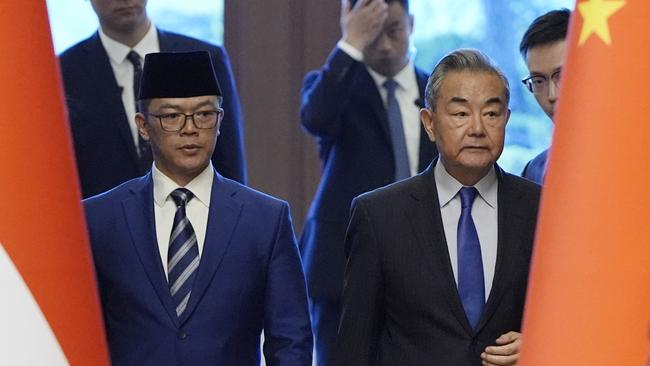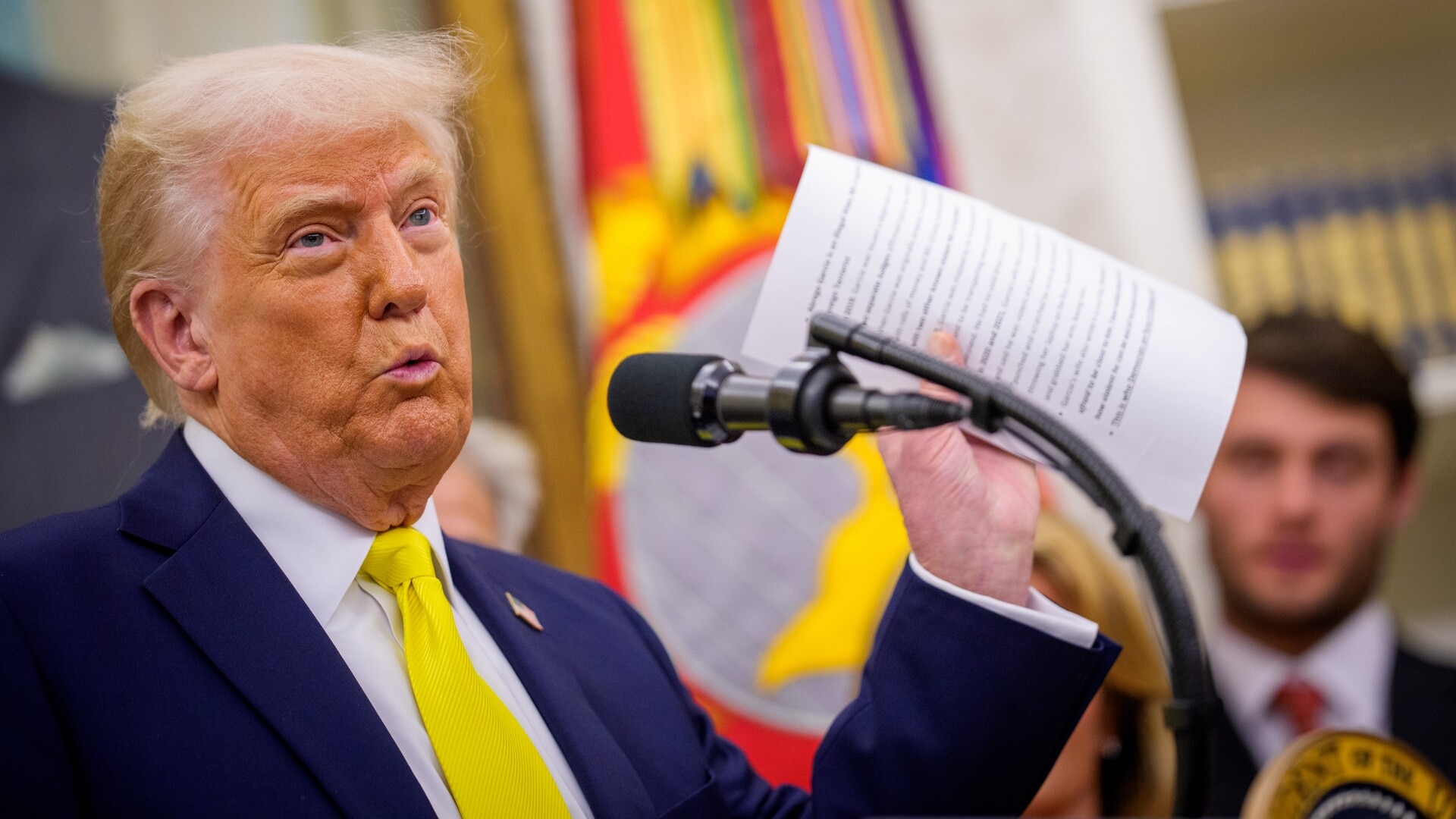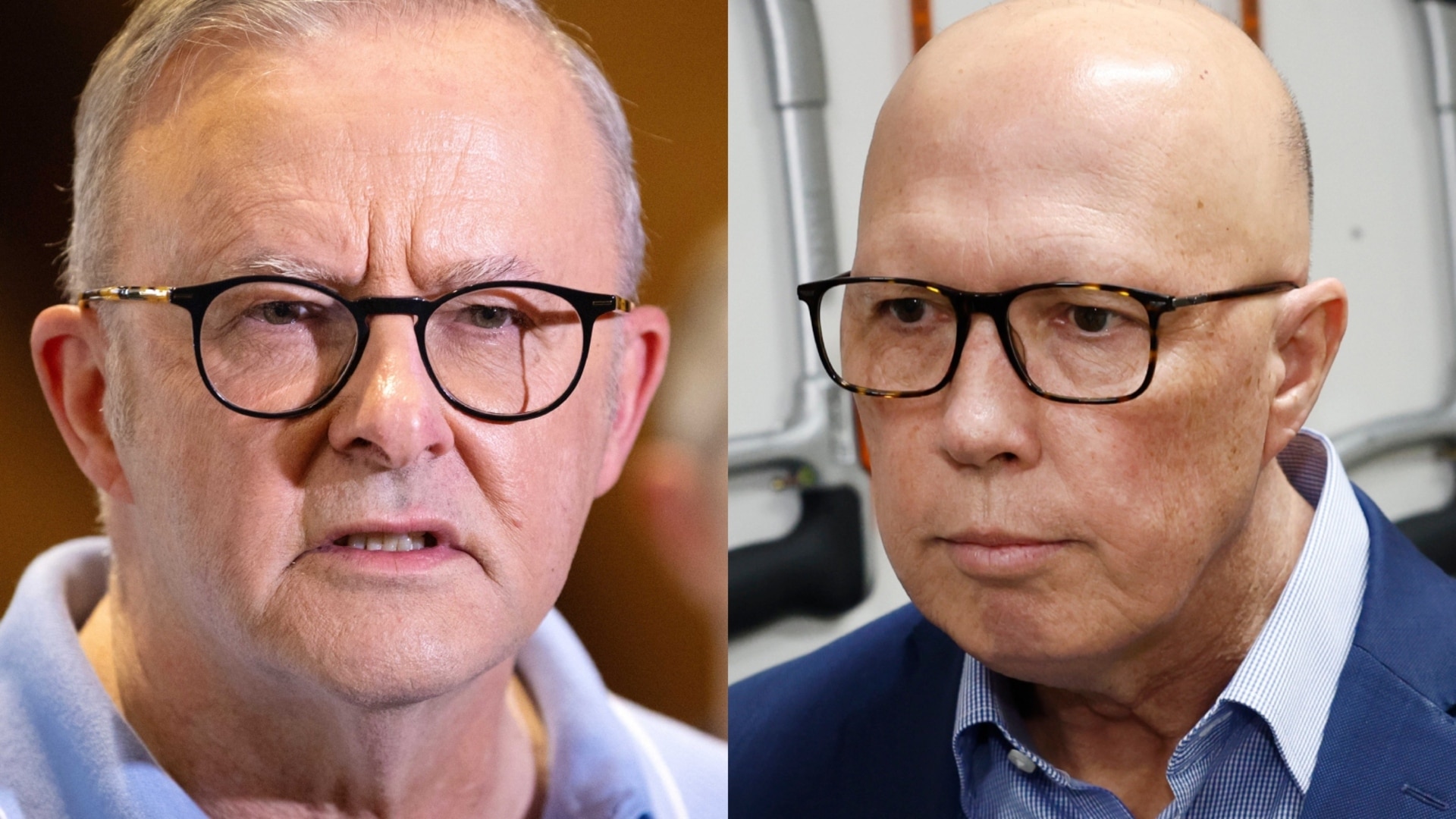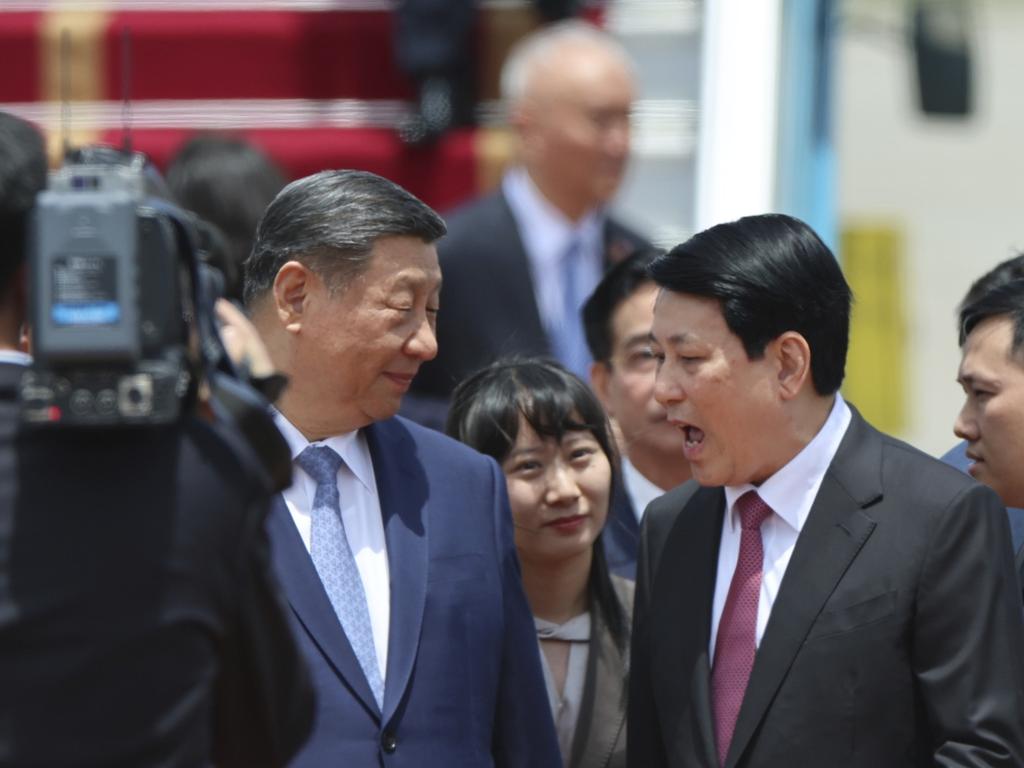China’s threat to Asia on US tariff deals
Southeast Asian nations facing strongarm tactics from both Washington and Beijing are having to thread the needle to satisfy both sides.

China has urged Indonesia to help it oppose protectionism and escalate regional trade integration, while warning Jakarta’s neighbours against trying to “appease” Washington by striking trade deals at Beijing’s expense.
The two countries held their first ever “two plus two” defence and foreign minister-level talks in Beijing on Monday, agreeing to increase security co-operation amid rapidly shifting regional dynamics triggered by US President Donald Trump’s blistering tariff war.
The meeting follows Chinese president Xi Jinping’s “charm offensive” tour of Southeast Asian export nations Vietnam, Malaysia and Cambodia last week aimed at capitalising on regional concern over the Trump administration’s erratic policy swings and shoring up trade allegiances.
Chinese foreign minister Wang Yi also agreed separately to establish a Comprehensive Strategic Dialogue with his Indonesian counterpart Sugiono. Indonesia’s Minister of Foreign Affairs arrived fresh from talks with US secretary of State Marco Rubio to try to negotiate down a 32 per cent tariff on Indonesian imports to the US by promising trade concessions and purchases of up to $US19bn ($29.5bn) in US imports, including wheat.
Jakarta is also looking at speeding up the purchase of up to $US8bn worth of military aircraft and hardware.
Within hours of the ministerial meeting in Beijing, the US Commerce Department dealt another blow to the Chinese economy by announcing new anti-dumping fees on solar panels and cells made in Chinese-owned factories across Southeast Asia as high as 3,403.96 per cent.
Southeast Asia has become a key supplier to the US solar industry, pricing local manufacturers out of their own market with goods made in Chinese-owned factories across Cambodia, Vietnam, Malaysia and Thailand to bypass US tariffs on Chinese products.
But the Trump 2.0 administration is determined to close those loopholes by also punishing countries such as Vietnam and Cambodia that have profited from the so-called ‘China-plus-one’ policy to diversify some manufacturing out of China.
With Southeast Asian nations now scrambling to negotiate tariff carve outs with Washington for their own economies, China’s commerce ministry has warned “China firmly opposes any party reaching a deal at the expense of China’s interests”.
“Appeasement will not bring peace, and compromise will not be respected. To seek one’s own temporary selfish interests at the expense of others’ interests is to seek the skin of a tiger,” a Commerce Ministry spokesperson said in a statement underscoring the level of concern in Beijing.
“If such a situation occurs, China will never accept it and will resolutely take reciprocal countermeasures.”

With the White House expected to use negotiations with smaller nations to press them into limiting their dealings with China, ASEAN nations are now having to thread the finest of needles by reassuring Beijing of their amity and neutrality while satisfying US demands for greater trade parity.
Vietnam – facing tariffs of up to 46 per cent on its US imports – has already promised to crack down on fraudulent transhipments of Chinese goods into the US via its territory.
At the weekend Vietnam reportedly also struck a deal with the US to buy at least 24 F-16 fighter jets.
Combined with the sale of other US military equipment, the deal could add up to the biggest ever defence agreement between the two countries, defence website 19FortyFive said.
Given Russia has historically been Vietnam’s biggest supplier of military planes, the switch to US aircraft would “deal a major blow” to Moscow-Hanoi relations that risked provoking China’s ire, Ian Storey, a senior fellow at Singapore’s ISEAS-Yusof Ishak Institute, told Radio Free Asia.
China has previously criticised the prospective sale of F-16 aircraft to Hanoi, warning such deals would threaten regional stability.
But Carl Thayer, a Vietnam expert and University of NSW emeritus professor, said Hanoi had set the ground to procure F-16s from the US “by simultaneously raising defence co-operation with China” during Mr Xi’s visit last week.

Professor Thayer said it would be “normal practice” for the US to attach conditions to the sale of advanced aircraft, including US military access to Vietnamese military facilities for training, maintenance and other support, though that was unlikely to lead to any permanent stationing of US air force planes or US naval ships on Vietnamese territory.
Malaysia is also pushing for a deal with Washington through its national carrier, Malaysia Airlines, which is now exploring buying Boeing aircraft cancelled by Beijing as part of its countermeasures in the trade war with the US, the airline group’s chief executive Izham Ismail told Bernama news agency.
“MAG (Malaysia Aviation Group) is in conversation with Boeing about whether we can take over those slots,” he said.
Meanwhile, the US and Philippines militaries launched their so-called “Super Bowl” of annual exercises on Monday, the largest-ever Balikatan with more than 14,000 participants from 20 nations, including Australia, Japan, France and Japan.
Philippines army Brigadier General Michael Logico said the “full battle tests are intended to take into consideration all of the regional security challenges that we face today, beginning in the South China Sea”.







To join the conversation, please log in. Don't have an account? Register
Join the conversation, you are commenting as Logout